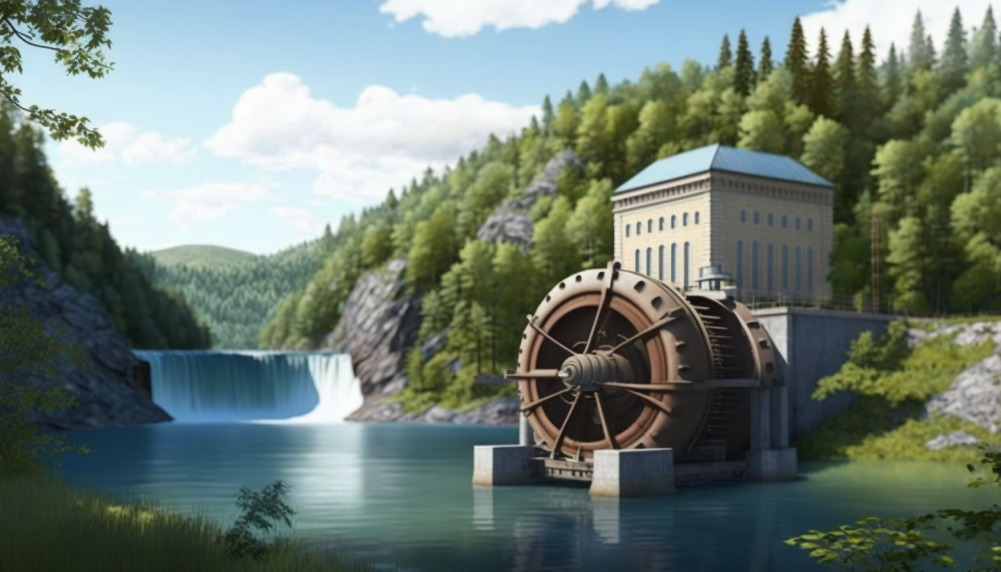The discourse surrounding renewable energy has surged in recent times, as nations pivot their attention towards environmentally friendly and inexhaustible sources of energy.
The concept of “renewable energy” encompasses those sources which are replenished in an organic manner, offering boundless and sustainable options.
This write-up seeks to offer a comprehensive primer on renewable energy, encompassing a gamut of aspects such as various renewable energy sources, their relative pros and cons, and why they hold paramount importance for the world’s future.
In this article
Understanding Renewable Energy
Renewable energy stands as a beacon of hope for a cleaner and more sustainable future. Unlike non-renewable sources such as coal, oil, and natural gas which are finite and emit harmful by-products into our environment, renewable energy sources are replenished naturally, providing an unlimited supply. The quintessential forms of renewable energy include solar, wind, hydro, geothermal, and biomass. These sources are instrumental in creating a greener tomorrow, free from the constraints of finite resources.
Types of Renewable Energy
Solar Energy
The radiant beams of the sun can be harnessed to produce an abundant source of clean energy – solar energy. Through the use of specialized solar panels, this energy can be transformed into electricity, capable of powering homes, commercial establishments, and entire communities. It is a renewable source of energy that offers a brighter and cleaner future, untainted by finite resources and harmful pollutants.

Wind Energy
The gusting winds can be tamed to bring forth a bountiful source of renewable energy – wind energy. Through the use of cutting-edge wind turbines, this energy can be harnessed to generate electricity, becoming increasingly popular as technology advances and the world clamors for a cleaner energy future. The utilization of wind energy represents a step towards a greener tomorrow, breaking free from the chains of finite resources and harmful emissions.

Hydro Energy
The thunderous power of cascading water can be harnessed to produce a seemingly endless source of clean energy – hydro energy. The kinetic energy of falling water, such as in hydroelectric dams, can be utilized to generate electricity, a practice that has stood the test of time for centuries. Hydro energy represents a sustainable solution, breaking free from the shackles of finite resources and harmful pollutants, towards a brighter and cleaner energy future.

Geothermal Energy
The Earth’s inner heat, a byproduct of the planet’s very core, is harnessed to produce electricity in the form of geothermal energy. A surge in demand for this clean, sustainable source is being observed in certain regions, due to its dependable nature and efficacy.

Biomass Energy
The utilization of organic matter like wood, agricultural residue, and other organic substances as fuel source is what constitutes biomass energy or bioenergy. This renewable energy source, with a rich history spanning centuries, is gaining widespread acceptance as a clean alternative to traditional fossil fuels.

Advantages of Renewable Energy
- Clean and sustainable energy source
- Replenished naturally, making it an unlimited resource
- Reduced dependence on finite and polluting non-renewable energy sources
- Reduced carbon footprint and improved air quality
- Supports local communities and economies
The Importance of Transitioning to Renewable Energy
A multitude of energy and ecological challenges loom over the world, including the adverse impacts of climate change, air contamination, and reliance on non-renewable, polluting energy sources. Renewable energy presents a viable answer to these issues by offering clean, naturally replenished sources of energy. The shift towards this form of energy is indispensable for securing a sustainable future for all.
Renewable Energy and Non-Renewable Energy
The contrast between renewable and non-renewable energy is different in many ways. Unlike the latter, which are finite and generate pollutants harmful to the environment, renewable energy sources are clean and replenished naturally. With non-renewable sources like coal and oil becoming scarce and costly, the opposite trend is being observed in renewable energy, which is becoming increasingly accessible and cost-effective thanks to technological advancements. The shift to renewable energy is imperative to decrease dependence on non-renewable sources and address the effects of climate change.
FAQs:
What is renewable energy?
Renewable energy is a form of clean and sustainable energy derived from natural sources that are replenished continuously. This encompasses various sources such as solar, wind, hydro, geothermal, and biomass.
What are the different types of renewable energy?
The five most widespread forms of renewable energy are solar, wind, hydro, geothermal, and biomass.
Why is renewable energy important?
Renewable energy is significant because it provides a response to the issues posed by climate change, air pollution, and reliance on non-renewable, finite, and polluting energy sources.
What are the advantages and disadvantages of renewable energy?
The benefits of renewable energy are numerous, including its clean and sustainable nature, natural replenishment, and reduction of dependence on finite non-renewable sources.
Conclusion
Renewable energy plays a vital role in securing a sustainable future. In the face of mounting energy and environmental difficulties, the shift from finite, polluting non-renewable energy sources to clean, sustainable renewable energy is of utmost importance. This piece serves as an overview of renewable energy, including various types, their pros and cons, and why they are crucial for our planet. As technology advances and demand for clean energy rises, renewable energy is becoming increasingly attainable and economical. It is imperative that we adopt renewable energy and take decisive steps towards a more sustainable future for all.
